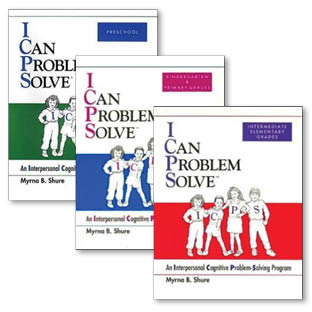The following at-home exercise utilizing I Can Problem Solve (ICPS) concepts and strategies was constructed by Stephanie Colvin-Roy, Lead International Trainer at the Center for Schools and Communities.
During this time, when families are home together and going through different stages of stress related to COVID-19 and the additional stressors associated with the holidays, they have an opportunity to provide comfort and reassurance for one another. The ICPS and Raising a Thinking Child program can be utilized in the home – with or without access to technology. Literature and other forms of media can be used to create awareness of the difference between helpful and hurtful social behaviors and promote perspective-taking (empathy). Perspective-taking is the ability to see or take on someone else’s point of view while thinking and developing the ability to understand another person’s thoughts, feelings, and attitudes. Here is a strategy utilizing ICPS concepts: (The words that are capitalized and in bold letters are emphasized to help youth problem solve if they have been engaging in ICPS or Raising a Thinking Child games. These questions can be used to help children problem solve and promote perspective-taking even if ICPS is new or unfamiliar.)
Talking with young people while reading stories, or sharing other forms of media together such as age-appropriate television, movies, and video games can promote social and emotional learning skills such as problem solving and perspective taking.
- How do you think the character is feeling when (name a specific event from the story, program, movie, etc.)?
- WHY do you think the character feels _______? (e.g. SAD, ANGRY, HAPPY)
- How can you tell they MIGHT feel_______? (If needed, ask “What are they doing or saying that makes you think they feel this way?”)
- How do you think this other character feels?
- How can you tell they MIGHT feel ______?
- Do you think these characters feel or think the SAME way or a DIFFERENT way about the situation?
- WHY do you think they feel a DIFFERENT way? WHY do you think they feel the SAME way?
- WHY do you think these characters are treating them this way? BECAUSE _________.
- How do you think you would feel if you were treated this way?
- Would you do the SAME thing or something DIFFERENT in this situation?
- What would you do that is DIFFERENT? What would you do that is the SAME?
- Why MIGHT this character be making this choice?
- Which character do you relate to most? WHY do you relate most to this character? BECAUSE _______.

